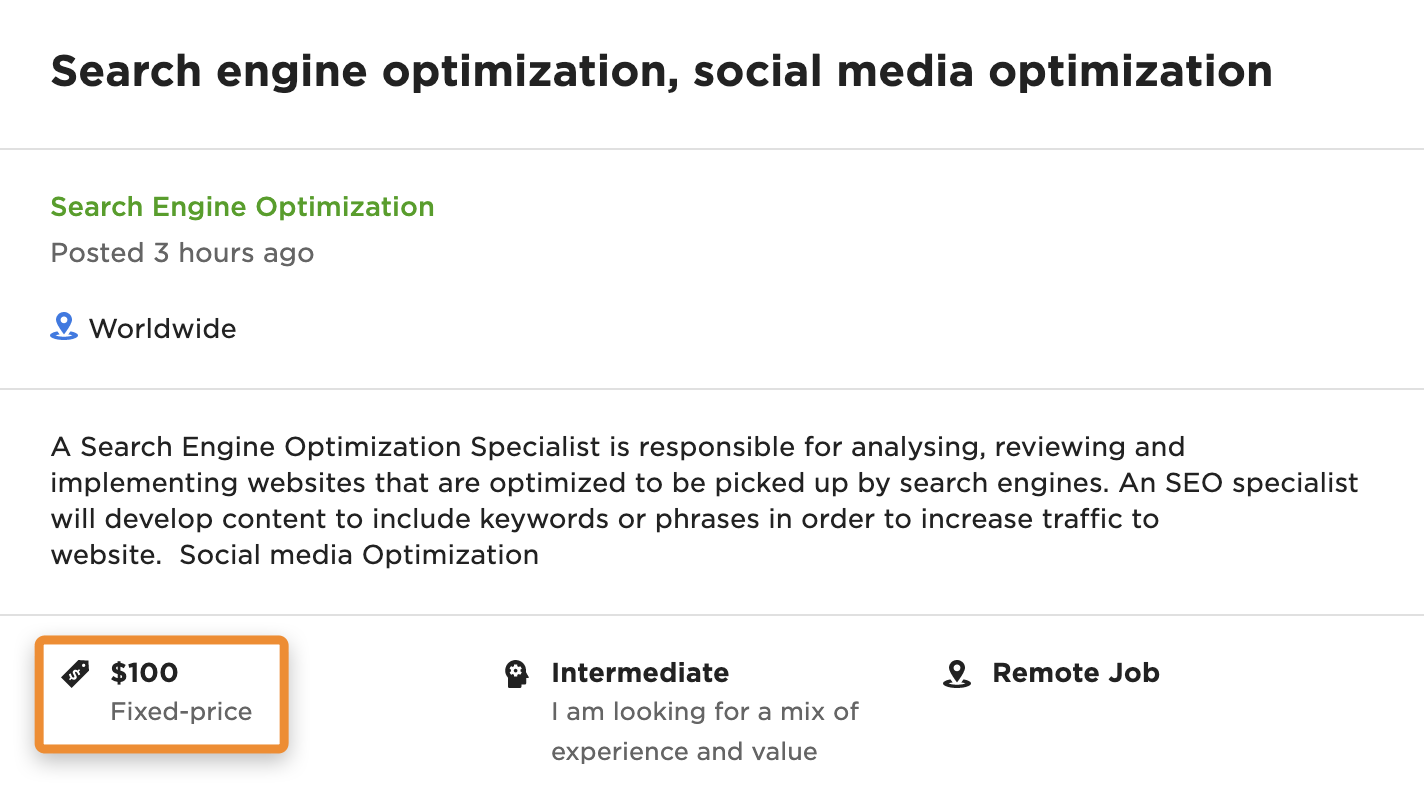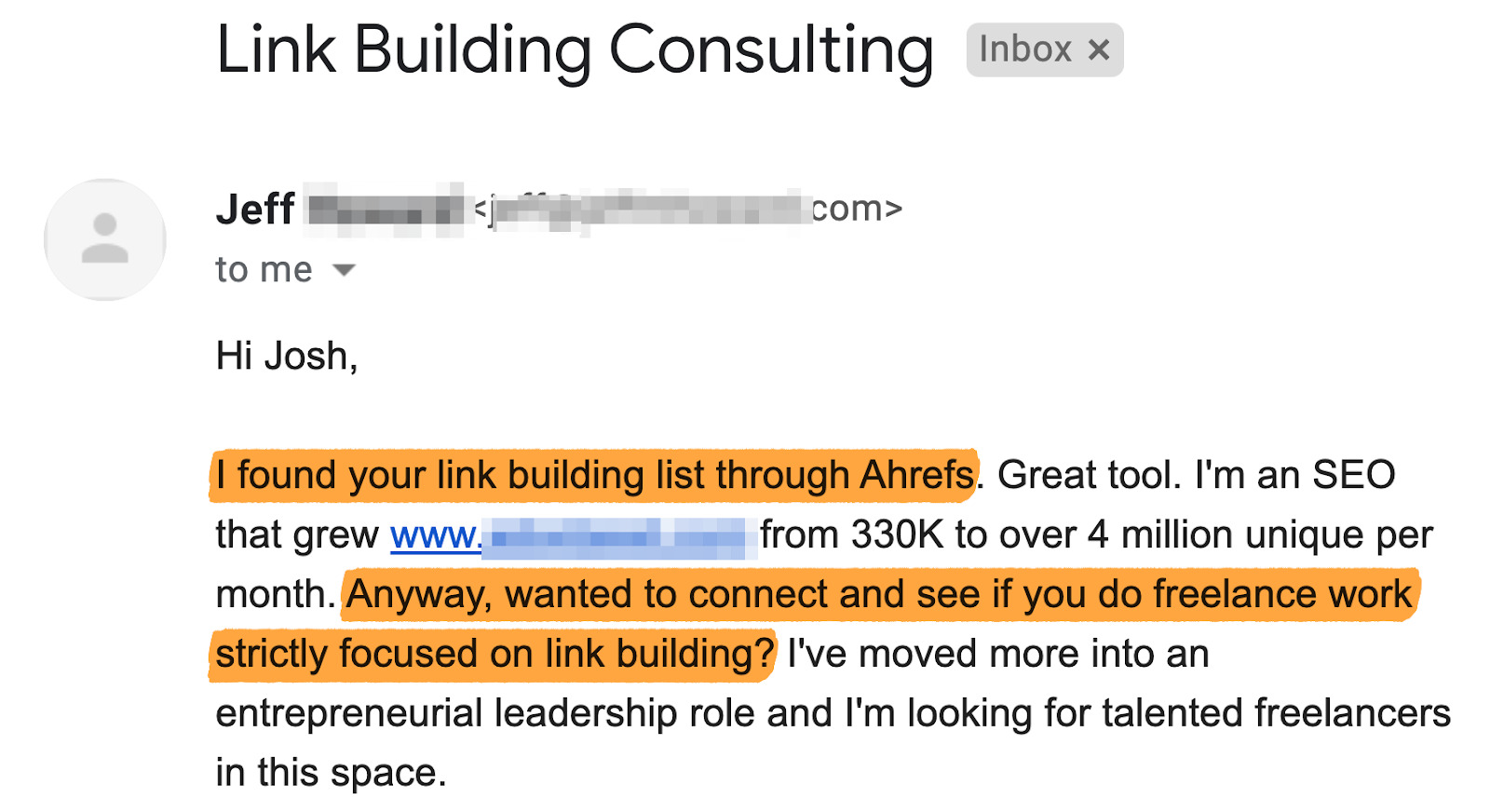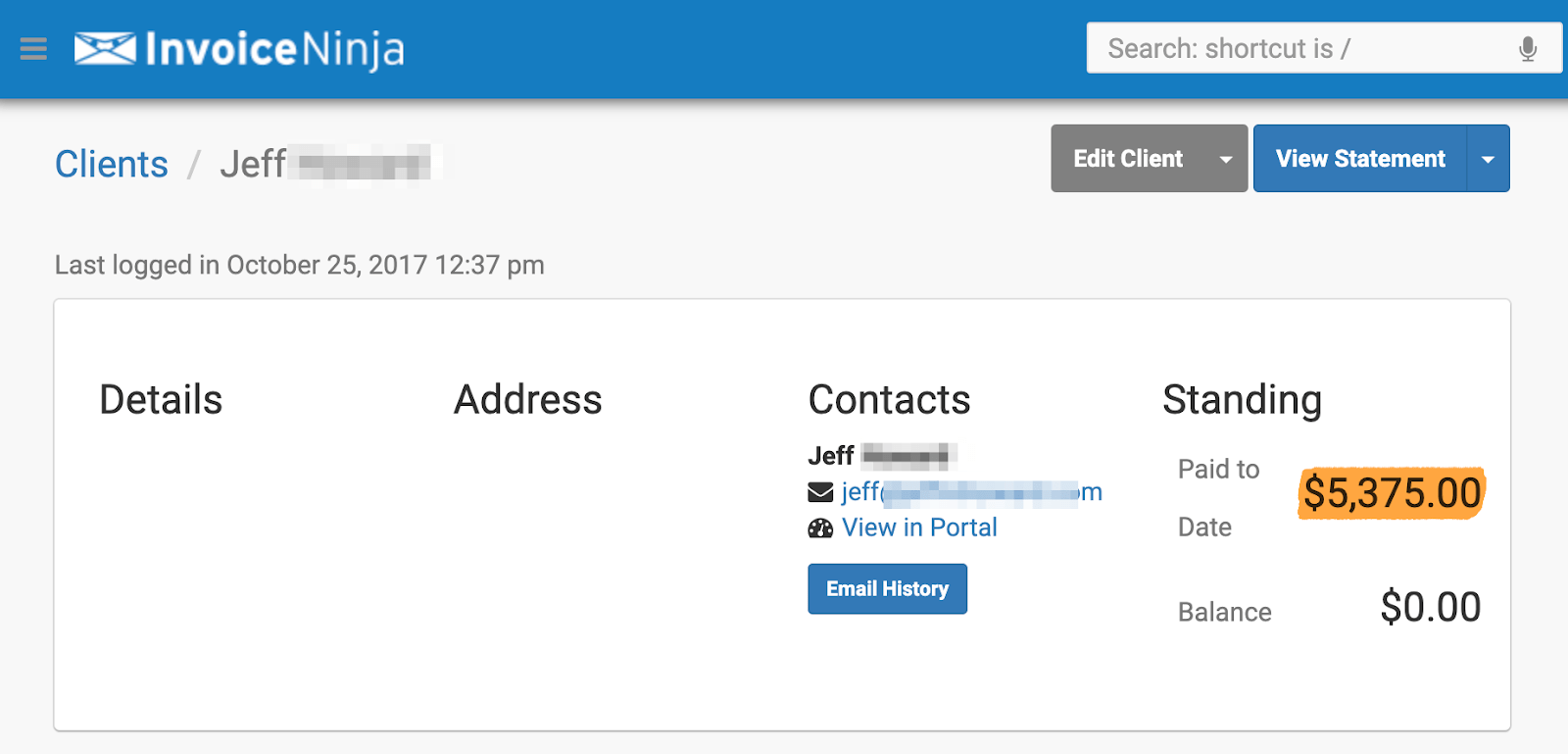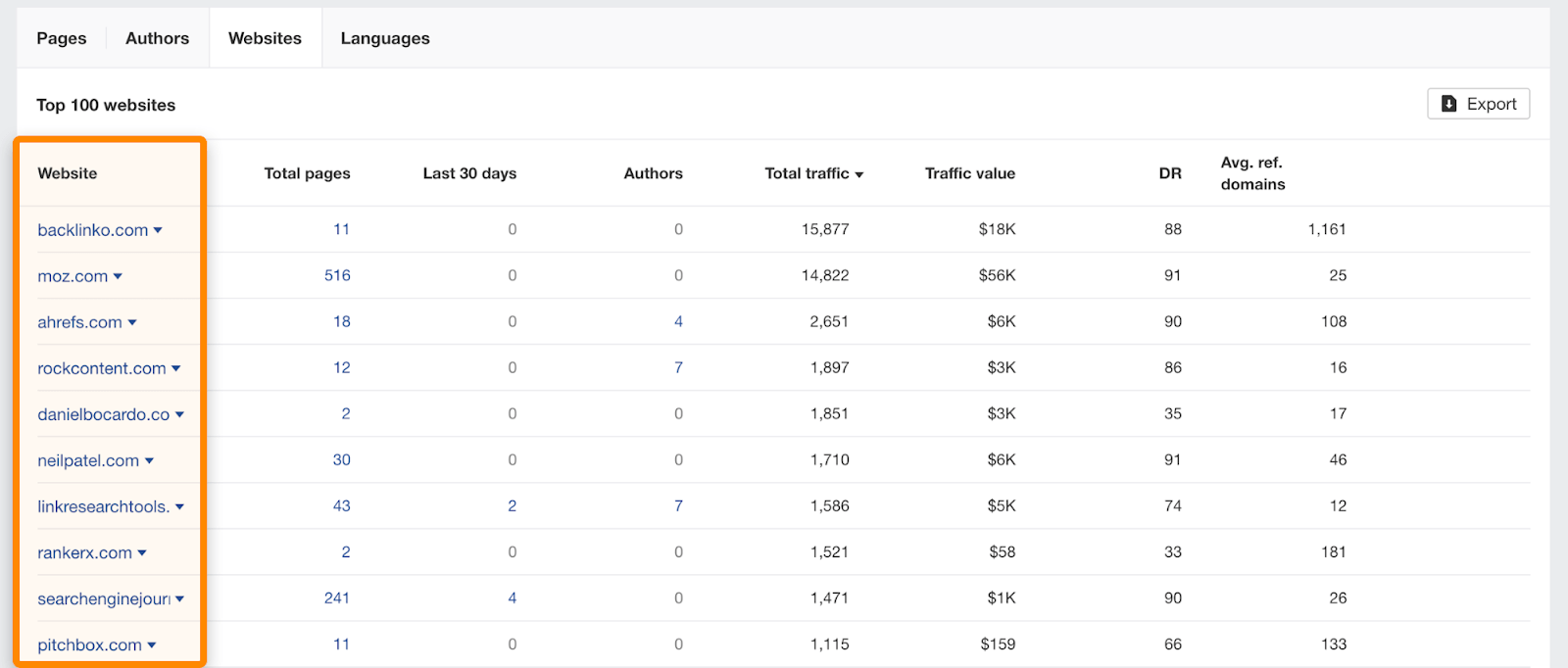My business wasn’t huge. At its peak, I was turning over between $5k-$10k per month. So if you’re here expecting to learn from the founder of a Fortune 500 company, prepare to be disappointed.
On the other hand, if you’re looking for a practical guide to starting a lifestyle SEO business from someone who’s walked the walk, this is the guide for you.
Here are the steps:
It’s incredible how many people try to start SEO businesses with little to no SEO knowledge. Don’t do this. You must make an effort to learn how to do SEO well before offering services to clients.
I can’t stress how important this is.
If you don’t know what you’re doing, you can cause more harm than good. I’m sure you’ve seen the horror stories where sites end up on the gazillionth page of Google after a penalty. You don’t want this to happen to your clients. Their sites are their livelihoods; you shouldn’t take that fact lightly.
Now we’ve gotten that out of the way; how do you actually learn SEO?
Let’s start with the obvious place: the Ahrefs Blog and YouTube channel. We’ve published hundreds of SEO tutorials over the years, many of which are perfect for beginners. I’m clearly biased, but I don’t think there’s a better starting point for learning SEO these days.
If you’re unsure where to begin, check out our beginner’s guide to SEO or SEO video course for beginners.
If you’d prefer to start elsewhere, check out Aleyda Solis’ website: learningseo.io.
You wouldn’t start an accountancy practice after reading a couple of books about taxes, so you shouldn’t start an SEO business after reading a few SEO guides. Knowing the theory isn’t enough; you need hands-on experience before you start offering services to businesses.
How do you get experience? Create your own website and use it as a testing ground for your SEO skills.
This is what I did.
In 2012, I started a fitness blog. It was nothing special, but it was getting upwards of 50,000 organic visitors per month after just ten months.

Even better, it was making some nice affiliate commissions from Amazon.
Now, I should probably mention that starting a website isn’t the only way to get hands-on experience. Another option is to find a reputable agency and learn on the job. However, as you’re reading this guide, you’re probably more entrepreneurially-minded and don’t want to work for someone else. In which case, starting a website is the only option.
If you’re not sure where to start, read our guide to keyword research or watch this video:
While practicing and honing your SEO skills on your own website, you’ll start to get an idea of what you enjoy the most.
This is different for everyone. For me, it was link building and content creation. I found that I didn’t really enjoy the technical side of things, and things like keyword research and on-page SEO were just things I had to do. I certainly didn’t love them.
But why is this important for starting an SEO business?
Simple. Because SEO agencies offering “all-in-one” SEO services to businesses are ten-a-penny. While I don’t want to discourage anyone from starting such a business, I had more success when I specialized and offered services in one area.
So once you know what you enjoy, it’s time to start expanding your knowledge in that area. Do that, and you’ll soon become what Rand Fishkin calls a t-shaped marketer. You can then begin to carve out a niche for your services.

Now that you’ve learned the basics and honed your skills in one area, you should be ready to start offering services to clients. But how do you find these people?
Here are just a few ideas:
Freelancing websites
Freelancing websites get a bad rap, and it’s easy to see why. Browse UpWork for a minute and you’ll see that most people have pretty unrealistic expectations.
Here’s the kind of thing I’m talking about:

But if you’re willing to spend a bit of time separating the wheat from the chaff, it’s possible to find some great clients on freelancing sites.
How do I know? I found my first ever SEO client on People Per Hour.
This wasn’t a one-off $50 job either. I ended up working with that client for a few years. And while I never did put them on a retainer (yes, slap my wrists), they were sending work to the tune of around $25k/year at one point.
Cold calls or emails
I could never bring myself to do cold calling. I did it many years ago when trying to get a non-SEO-related business off the ground and found it soul-destroying. I’m extremely introverted, so it’s pretty much my worst nightmare.
That said, cold calling/emailing still deserves a mention because it works.
How do I know? Because it’s just a numbers game.
Think of it like this:
- You send 1,000 cold emails
- 50 recipients agree to a call
- 5 calls convert
Given that most SEO professionals charge $500-$1,000 per month, five conversions are worth between $2,500-$5,000 per month. If we assume that clients stick around for an average of 6 months, those five conversions are worth $15,000-$30,000.
That probably doesn’t sound like a life-changing amount, but again, it’s a numbers game. If you know that every 1,000 emails bring $15k-$30k in revenue, all you have to do is scale:
- 2,000 emails = $30k-$60k
- 5,000 emails = $75k-$150k
- 10,000 emails = $150k-$300k
… you get the idea.
If you’re interested in this route, check out this post where Daryl Rosser explains how to sell SEO services via emails, step-by-step.
Inbound marketing
Because I’m introverted, inbound marketing was the primary method I decided to use to attract clients. So, in 2016, I started a website called The SEO Project to begin putting myself on the map.
Despite the tired design (I’ve neglected it for 4+ years), you can see that it isn’t your typical website offering SEO services. In fact, it doesn’t pitch services at all. That’s because I decided to opt for a different approach.
Here’s what I did in a nutshell:
- Created a piece of content about link building (the service I wanted to offer)
- Offered the full list as a PDF in return for visitors’ email addresses
- Did outreach to spread the word about my content
- Planned to “sell” my services via the email list
(Fun fact: My outreach for this piece led to my first interaction with Ahrefs’ CMO, Tim Soulo, who asked if I fancied writing for the Ahrefs Blog. I said yes, and the rest is history.)
Now, I never did execute on that last part (I’ll discuss why later). But I did the first three parts and managed to build a list of over 1,000+ subscribers in just a few days.
However, this isn’t the only way to attract clients with inbound marketing.
Here are a few more options:
- Optimize your site to rank high in Google for lucrative terms (e.g., “seo consultant london”)
- Attract potential customers through a YouTube channel
- Run PPC ads on Google
- Write guest posts
Let’s talk a little more about that last one.
Guest posting
Guest posting is another tactic I successfully used to attract clients, as you can see from this email:

In this case, the client found me through a guest post on the Ahrefs Blog. I went on to work with him for a few months, earning $5,375 in revenue in the process.

If you’re planning to give this tactic a shot, my best advice is this: only write guest posts for industry websites that get traffic. Remember, we’re not using guest posting as a link building tactic; we’re using it as a marketing tactic.
The easiest way to find such websites is with Ahrefs’ Content Explorer, a searchable database of content from over seven billion websites.
Here’s how to use it to find guest posting opportunities:
- Open Content Explorer
- Search for something related to SEO
- Choose “in title” from the dropdown
- Hit search
- Check the “Websites” tab

Check each of the sites in the results and see if it’d make sense to pitch a guest post.
Get referrals
Do great work for the clients you attract using the methods above, and they’ll no doubt refer you to others. This is the ideal scenario because it creates an infinite growth loop—as long as you consistently deliver and impress your clients.
Focus is essential when setting up an SEO business, so minimizing unnecessary distractions is key. You want to be spending as much time as possible getting clients and delivering services because that’s what pays the bills.
Here are my recommendations for doing that:
Get an accountant
This might seem like an obvious point to make, and I know it’s not unique to SEO businesses, but I would urge you to get an accountant early on.
If you don’t, you’ll spend countless hours every year filing tax returns—at least if you’re in the UK/US/Canada. This isn’t good for two reasons:
- It’s extremely stressful.
- It wastes time that you could spend working on your business.
I’m speaking from experience here. I didn’t get an accountant for far too long, all for the sake of saving a few hundred dollars per year.
Believe me when I say it isn’t worth it.
Use invoicing software
Invoicing and chasing payments is another thing you don’t want to be wasting time on, and there are plenty of apps to help with this.
Here are my recommendations based on personal experience:
If you’re looking for a free app, try Invoice Ninja. You can send as many invoices as you like, set recurring invoices to automate invoicing for SEO clients on retainers, and it integrates with most payment gateways. I used this for years in the early days of my business.
If you’re looking for a paid app, try Xero. This is an accounting app, but it handles invoicing too. It also integrates with most business accounts and payment gateways. Xero has been my app of choice for a few years.
Get a multi-currency account
Nothing is more frustrating than having a client ready to pay but no easy way to receive funds in their native currency. This isn’t usually a problem if you’re doing local SEO and working with clients in one country, but it quickly becomes a problem if you’re working with SEO clients internationally.
There are two possible solutions to this problem:
- Get a multi-currency account with your bank
- Use a service like Wise (formerly Transferwise)
For an easy life, I can certainly vouch for Wise. I’ve been using them for a few years now, and their fees are incredibly reasonable compared to most banks. They also make it easy for you to send and receive payments in 50+ currencies.
Building an SEO business takes a lot of time and effort. I’m making it sound simple in this blog post, but there will be many unknowns along the way. You’re unlikely to build a million-dollar agency overnight.
For that reason, my advice is not to concern yourself with “scaling” or hiring staff until your revenue is in the mid-five figures per year.
That’s not to say that you should shy away from hiring freelancers or virtual assistants (VAs) in the early days of your business. It’s wise to delegate tasks when things start gaining traction and you’re feeling overwhelmed. But in my opinion, it’s not wise to hire full-time employees until your cash flow is stable and you’re confident you can actually afford to keep them on.
If you’re not yet at that stage, keep grinding. I know from experience that it probably won’t happen as fast as you’d like.
If you are at that stage, you have two options:
- Keep things as they are
- Start hiring and scaling your business
Given the constant “hustle” mentality in the industry, I think it’s important to remind ourselves that the first option actually exists. Not everyone wants to scale their business to six or seven figures per year. If you’re happy with your turnover and workload as an SEO freelancer, there’s no shame whatsoever in keeping things that way.
This is precisely why I never ended up “selling” to the email list I mentioned earlier. It took me a while to realize this, but I never really wanted to start an SEO agency. I was quite happy working for a few clients and having a comfortable life.
But let’s say that you do want to scale your business; how do you do it?
In theory, it’s simple:
- Productize your services
- Hire people
Productizing your services is where you standardize your offering and create a repeatable, step-by-step process for delivering it to clients. It’s beneficial because it makes services easier to deliver and makes it easier to hire staff.
Speaking of staff, that’s the second part of the equation.
It’s impossible to scale your business without bringing other people on board because you only have so many hours in the day.
Recommended reading: How to Outsource SEO (Simple Framework)
Final thoughts
Most of the advice above is based on my experience. It’s worth pointing out that there are many ways to build a successful SEO business. This is just the way I did it.
Let me know on Twitter if you have any questions.




